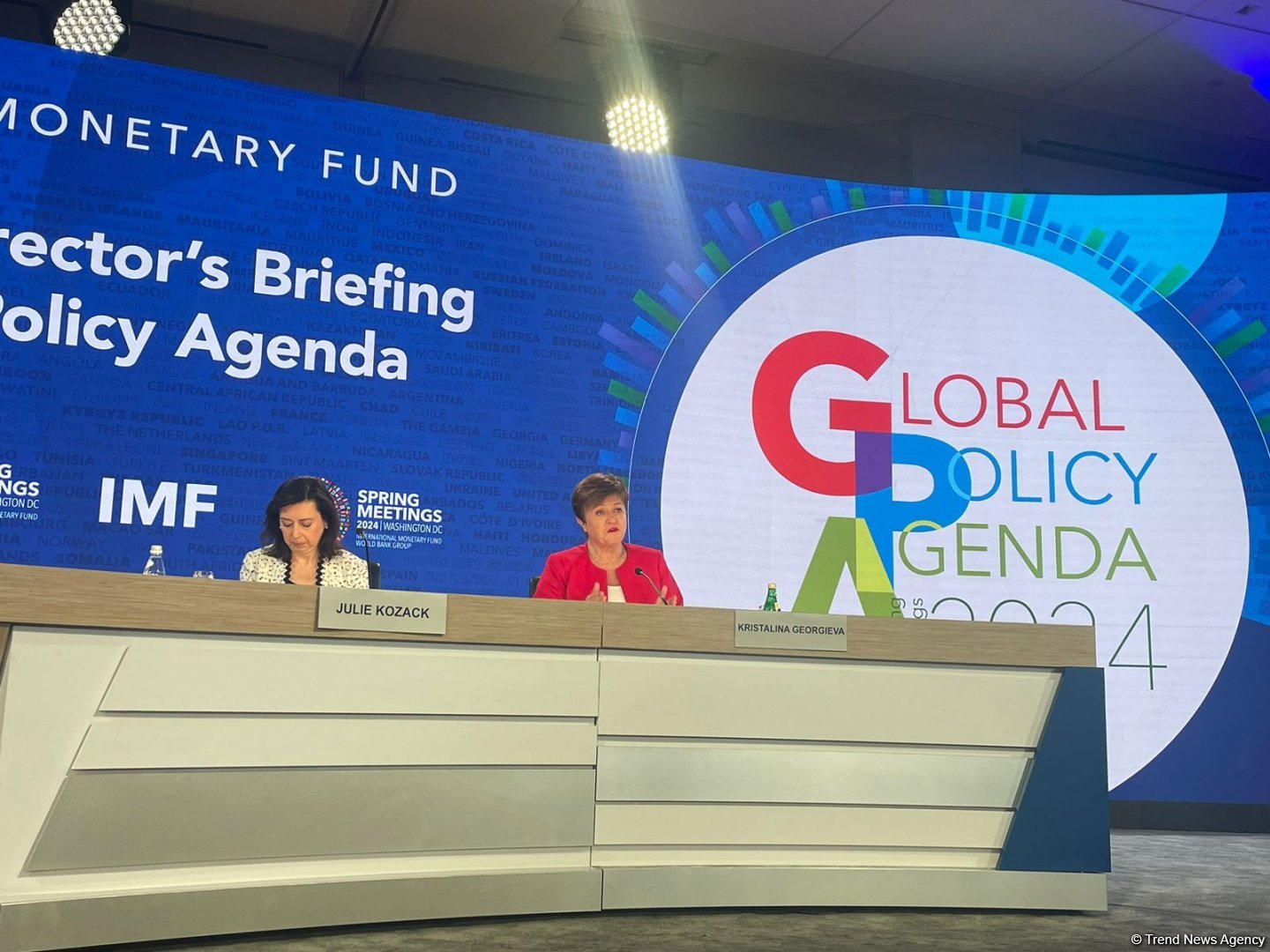U.S., WASHINGTON, April 18. Countries must urgently build fiscal resilience to be prepared for next shock, said the Managing Director of IMF Kristalina Georgieva during a briefing on the Global Policy Agenda held as part of the IMF Spring Meetings in Washington, Trend reports.
“Over the last years, there have been plenty of turbulence in the world economy. We had pandemic wars, and climate disasters during a crisis. Despite these multiple shocks and tight financial conditions, growth is firmly positive. And we have slightly upgraded our forecast for this year to 3.2 percent. Yet there is plenty to worry about. Inflation is down but not gone,” she said.
Georgieva noted that medium-term growth prospects at around 3 percent are the lowest in decades, held back by a broad-based slowdown in productivity.
“And divergences within and across groups of countries are growing, with poorer countries falling even further behind. In this context, we are focusing on key priorities. First, building fiscal buffers. Now fiscal restraint is becoming even more important on its own, because fiscal capacity is exhausted in most countries. Amid the crisis, countries must urgently build fiscal resilience to be prepared for the next shock,” said the IMF managing director.
Georgieva went on to add that the time has come to adopt medium-term frameworks for fiscal consolidation.
“We recognize one size does not fit all. Speed of consolidation with vary depending on country circumstances. So we'll also balance between mobilizing revenue and improving spending efficiency. What is very important is not to forget the burden should not fall on the most vulnerable people,” she said.
Georgieva noted that the second priority is foundational reforms, strengthening governance, increasing female labor market participation, and improving access to capital.
“We are directing a significant part of our research towards policies to enhance the growth prospects of our members, in particular those most severely impacted by exogenous shock. And that brings me to the third priority: renewing our commitment to our membership. We have provided over $300 billion in financial support to almost 100 countries,” she said.
The Spring Meetings of the International Monetary Fund and the World Bank Group kicked off on April 15.
The main ministerial meetings and events will take place April 17-19 with other events and activities taking place during the week, April 15-20.
At the heart of the gathering are meetings of the joint Development Committee and the IMF's International Monetary and Financial Committee, which discuss progress on the work of the World Bank Group and the IMF.
The Spring Meetings bring together central bankers, ministers of finance and development, parliamentarians, private sector executives, representatives from civil society organizations and academics to discuss issues of global concern, including the world economic outlook, poverty eradication, economic development, and aid effectiveness.







